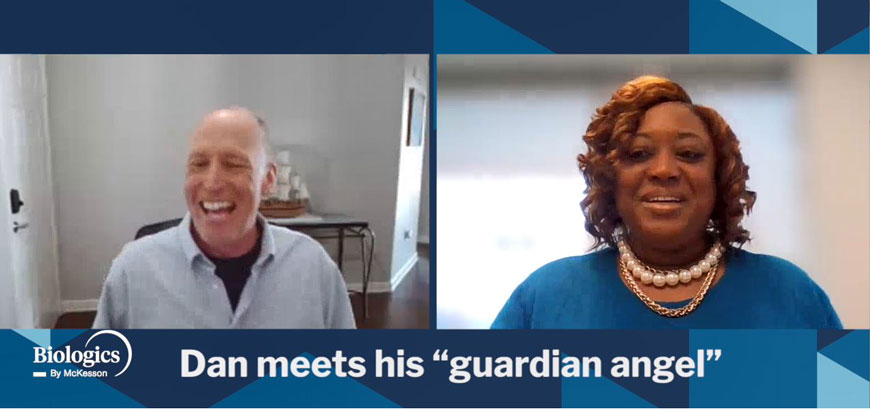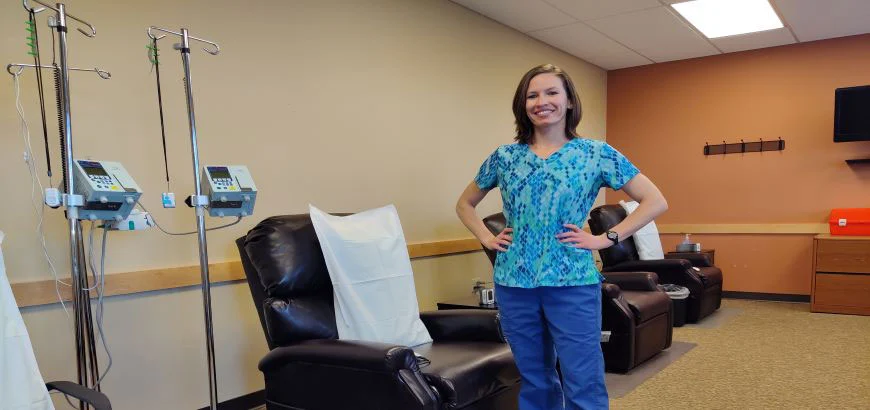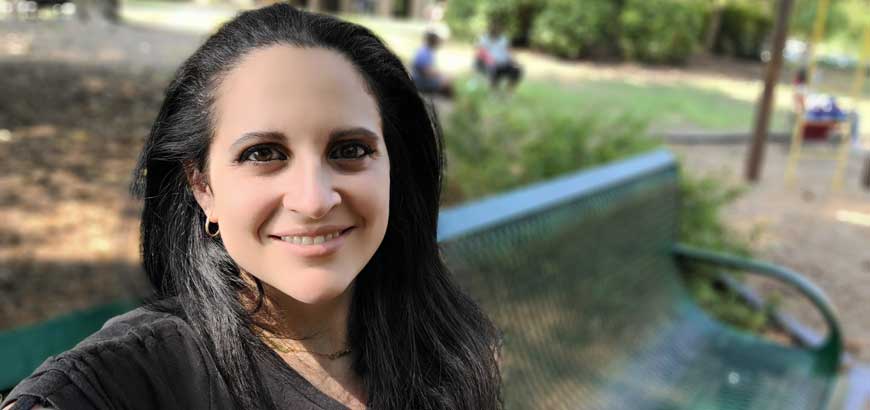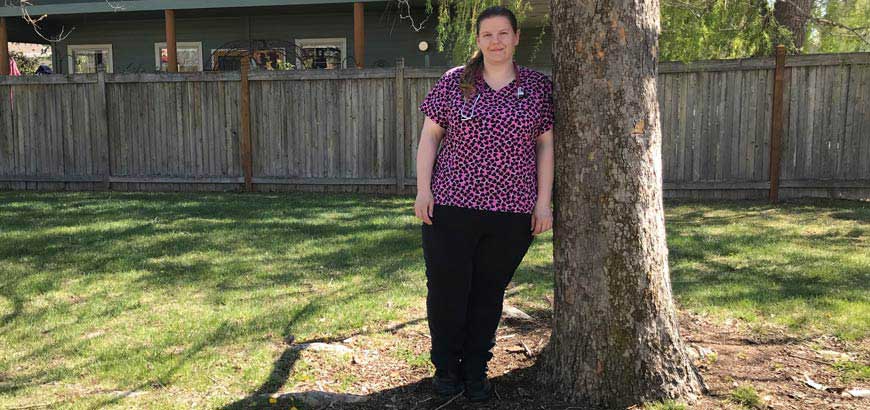Read time: 4 minutes
Nearly every person knows someone who has been impacted by cancer. Grandparents, parents, siblings, friends, and, for some, even their pets.
Shortly after Porscha Scales’ 13-year-old dog, Derrty, was diagnosed with leukemia in 2018, she learned this would be the same disease process she would be managing in her new role at Biologics by McKesson, McKesson’s independent specialty pharmacy dedicated to cancer and rare disease patients.
“Going through the cancer process with Derrty was reassurance and confirmation that I was right where I was supposed to be, doing the work I was meant to do,” Porscha says. “And although we never set eyes on the patients we treat, we can still relate to them through meaningful conversations.”
A Small Team with Lasting Impact
Today, Porscha works as a clinical case educator on the risk-based care team. The risk-based care program is a white-glove service provided to patients living with cancer and rare diseases. It’s designed to help them adhere to their medications and optimize the outcomes of their health journey.
Risk-based care customizes support to meet the unique needs of each patient. When a patient is referred to the team, they have an initial assessment with a pharmacist and complete a risk-tolerance questionnaire. Within 24-48 hours of the assessment, the patient is paired with a nurse who initiates a care plan. Monthly phone calls and check-ins help to provide top-tier service, and conversations can range anywhere from advice on controlling nausea to the more challenging, like end-of-life discussions and helping prepare patients on how to speak to their family members.
Porscha explains that the patients she encounters are often on their second or third round of battling cancer. Consequently, her role is just as much about providing clinical advice as it is about offering emotional support.
“Even though some days it is emotionally taxing, we are helping improve people’s quality of life,” Porscha says. “It is not something I have ever experienced before in my 20-plus years of nursing. My why is for my Nana, who had colon cancer, my uncle with liver cancer, and Derrty. I treat patients like family and in doing that, I’m able to honor the lives of my own family.”
A Phone Call Away
While Porscha’s work has impacted the lives of more patients than she can count, it was a serendipitous conversation with one of her patients, Dan Walsh, that created the bond of a lifetime.
Dan’s journey to Porscha and the Biologics’ team first began after he noticed swelling in the back of his neck. Following a biopsy, Dan was diagnosed with leukemia in his lymph nodes.
“I was shocked,” Dan says. “I take care of myself, exercise and eat right. I thought, ‘How can I get cancer?’ It was a real shock to me.”
While he was taking intravenous therapy, his doctor explained that he’d also need to take an oral therapy provided by Biologics. Initially he was skeptical – why the need for all of these medications?
But then he got the call from Porscha, and her personal approach changed his outlook.
“She was more interested in me,” he explains. “She asked me, ‘How are you doing? How are you feeling? What are you eating?’ She showed this level of consideration and caring that just blew me away.”
Like she’s done with all her patients, Porscha tailored her conversations with Dan based on his needs.
“I treat patients like family and in doing that, I’m able to honor the lives of my own family.”
“My goal in every patient interaction is to provide care for the whole person, and Dan made that really easy,” she explains. “He was open and honest with me about how he felt when starting treatment.”
But their connection soon took a more personal turn. In February 2021, as Dan was going through his treatment, he was hit with the devastating loss of his dog, Onyx.
“Onyx was like my last living connection to my mom [who died of cancer in 2016],” Dan shares. “I think the universe gives out what you can take, but it also helps nudge or push you in the direction you need. While I was having a real rough time, my phone rang, and it was Porscha. I told her about Onyx and on that call, she went from being my nurse, to my friend, to my guardian angel.”
It just so happened that Onyx’s passing occurred in the same month that Porscha had said goodbye to Derrty three years prior. The two bonded over their shared loss and Porscha provided much-needed emotional support during Dan’s hardest days.
“We both got choked up, and that kind of solidified it for me,” Dan says. “She took extra time to talk to me.”
Today – after a full year of oral therapy – Dan is in complete remission. While he credits his full support team for reaching this moment, he feels especially indebted to Porscha.
“I’m blessed,” he says. “I’m blessed to be in remission. But if it comes back, my first call will probably be to Porscha.”




Share
Post
Post
Email